Lady in the driveway about ”The Lady in the Van”.
I'm catching up on cinematic backlogs. Yesterday after seeing The Lady in the Van my husband said: "It's wonderful how nothing happened in this movie." Surprised, I was looking at the story of The Lady in the Van in my head. Indeed, the plot of the film closes in one sentence. In the driveway of the playwright Allan Bennett, an elderly woman who lived in her van parked for 15 years. So much for the story. It is difficult to say that nothing happened in the film. And you certainly can not say that it was about nothing.
Before we go to the film itself, we must necessarily look at the history of its creation. This is not a completely separate work. First of all, we have memories of the author himself - Allan Bennett, playwright and actor who has encountered this crazy old lady in the truck. On the basis of memories, were created play (successfully staged in London) and a radio play . In both cases, the role of the old lady was played by Maggie Smith. This path is important because we are dealing not only with the extraordinary material because of its relationship with reality (which is about to happen) but also with the story of the English public in a certain form known and known to actors - especially the phenomenal Maggie Smith who already knows her heroine very well. It is important to remember this way of play to the screen - especially since we are dealing with a specific work suspended between reality and fiction.
Exactly - the movie opens with a card informing us that we are dealing with "usually true story". And this is the best key to the whole story. From the very beginning, the author's considerations are divided into those related to the old lady in the van and the more interesting ones - which relate to the very fact of telling a story from the real life taken. The author here is literally split up - as the writer he is talking to himself, we have two Alans - one sitting behind a desk that deals with writing down the whole story and the other - who lives. The one who writes allows himself from time to time to shape the events - by violating the realistic dimension of the story, he shapes the whole story to create a narrative in which there is room for deeper reflection. It is he who juxtaposes the care of a slightly crazy old woman, with the remorse of the author who suffers because of placing his mother in a nursing home. He ultimately forces Miss Shepard, who lives in the van, to tell the audience and his "living" counterpart a little more about herself. This procedure means that even when nothing happens, we get a film that reflects on the very nature of the autobiographical story, on shaping a story about ourselves that would fit our imaginations, so that events from life become an appropriate commentary on what is happening in ourselves. Eventually, this living Alan and the writer have completely different relations with Miss Shepard. While one, still irritated by her behavior, lives with her in a friendly way, the other requires her to behave a little differently and to provide the whole story with a much-needed punch line.
At the same time, this story, spread over a dozen or so years, is a calm reflection on the changes that take place in relationships between people. The film was shot on the same street where the author lived and stopped Miss Shepard can, is talking not only about the author himself, but also about the entire environment of Camden residents and their response to such a new neighbor. Inhabitants of the street are slowly getting used to the company, but never going beyond looking at it is getting away from the right distance. They call Alan a saint, but both they and social care do not really want to do anything about the situation. Everyone is extremely grateful that the writer was able to set himself up, depriving the other residents of the street a bit of trouble. At the same time, Bennett himself avoids a simple scheme in which the acquaintance with an elderly lady turns into a friendship. On the contrary - there is a lot of distance in their relationships, they never speak by their names, Bennett never crosses the border of the car. At the same time, he is responsible on the other - he does not want to become a guardian - rejecting the idea that he would really take care of the old lady. There is something well-known to us that we perfectly know from our own relationships with people in need of help. Where we use the customs, politeness and everything we have on hand to not disturb the distance. It is very important that the author and creators of the film managed not to enter the world of pink ponies where our hero ceases to feel irritated by the whole situation.
At the same time - according to what the author himself said, and at the same time the hero of the whole situation this is a story above all about poverty. The story of the heroine - discovered in front of us in turn, does not change the fact that in the final analysis she was not only eccentric but, above all, poor. And this poverty - so perfectly illustrated by a pile of plastic bags (which we all recognize) and a nightmarish wardrobe, became what most of all pushed her out of the world's margin. Poverty has also become what ultimately pulled her away from society at some point, closing the possibility of any return. I realize that we all live a bit in the cult of this noble poverty that elevates man. But next to it is also the poverty that closes a man in a situation where society can not be returned. Whatever Bennett did he was at the same time a rather noble deed, but it did not change the old lady's situation at all. This one dealt with her situation as well as she could - although there is no doubt that she would not be where she was if it was not for psychological problems. These, like poverty, often want to be marginalized, especially when they make people difficult to contact and have absolutely nothing to do with beautiful minds.
The whole movie appears as a fairly warm tale that balances on the border of facts and imaginations. Shepard, played by Maggie Smith, is a malicious woman, sometimes quite conscious, sometimes living in the world of illusions and imaginations. We do not know to what extent it manipulates the residents of the street and Bennett and to what extent is she the victim of unfavorable life tangles of circumstances. At the same time, although she is not a nice person at all, it's hard not to have any sympathy for her. There would be no form if it was not for Maggie Smith's role. It is difficult to say the words why it is such a perfect creation. Perhaps these impressions should be broken down into a few examples. First of all, it's the question of the physicality of the role. If you watched Downton Abbey, you probably have seen how she can walk, move or even sit. In every gesture there is a high birth, a perfect upbringing and a habit of service. In The Lady in the Van there is no trace on that label. And at the same time - a new set of movements, belonging to a poor, homeless woman, seems to be the most natural in the world. There is a scene in the film in which the heroine sits curled up on a chair and eats a cake. How much is the fatigue of a person in this seat, who has not been sitting on anything comfortable for a long time, which is always a bit too cold despite the many layers of clothes and eat cookie because she's really hungry. At the same time, the heroine is clearly aging over the entire film - it seems weaker and smaller, and its large eyes grow bigger. Exactly - it is not only about the passage of time but also about the spectrum of emotions. We know perfectly well that Maggie Smith works in the roles of malicious and cut characters, she has repeatedly benefited from her outstanding comedy talent in film and on stage. What distinguishes the actress is the fact that she can play a person extremely fragile and delicate, closed in the world of her fears and feelings of guilt, overwhelmed by old age and poverty. The way Maggie Smith goes from one person to another, sometimes in one gesture is amazing. Besides, you can see that this is a character that Smith knows perfectly - from the beginning to the end and knows how to match her character to the character's even in the slightest gesture. Interestingly, we do not see the actress or her previous roles in the whole movie at all. Even when one of the scenes is mentioned that she looked extremely aristocratic, this is the aristocracy of Miss Shepard not from Downton Abbey.
In the face of such a role, the remaining actors are only to statist and create a background for the perfect creation of Maggie Smith. Alex Jennings is perfect in the double role of the author (he is also surprisingly similar to what each viewer will have the opportunity to convince even before the end of the screening) and the narrator. His polite British reserve and politeness play an almost separate role throughout history and the whole is beautifully composed. In addition, the film has a wonderfully woven motif of the author's homosexuality - developed in a way that is rare in movies. But again - this is one of the bonuses of history balancing between reality and fiction. In the second and third plan, we will meet almost the whole cast of History Boys - today even more well-known actors agreed to perform in small roles - probably only to make the viewer even more interested in how to properly relate the events in the film to reality. Roger Allam (as always) distinguishes acting roles as a somewhat surly neighbor and Frances de la Tour, whose character is probably the most pleasant of all in the film.
Interestingly, in addition to the threads and tracks mentioned here, there will still be a moment in this modest production for a quite decided voice against maybe not just the Catholic church but the badly conceived faith and sin. You can see that the author feels aversion to both nuns who rejected our heroine and religious people who earlier caused that the life of Miss Shepard took a tragic turn. Although the film is not a crusade against, it is a voice strongly reminiscent of the fact that the delicate psyche may not stand up to a firm opinion about sin and the devil. It is not condemnation of faith as such, rather parochial, closed to other people's thinking about piety. Devotion becomes the cause of many sufferings, including the most physical ones. And there is no doubt that there is a lot of English dislike towards the Catholic church, although a lot of truth - especially if we notice that the church, like any organization that wants to control the thoughts and actions of people, often harms the weakest.
Above all, The Lady in the Van is an extremely British film. If you know London, you will feel almost like being moved in time (the movie takes place in the 70's and 80's) and space. The cast is as British as it is possible, and the whole story - seemingly meaningless and yet moving - has a good stamp of British cinema, which through simple stories tries to reach the truth - whether about communities or about individuals. At the same time, it is - with all its light bourgeoisies - a film that is somewhat transgressive. It is not about a typical film transgression where we have transgression of moral norms, but about crossing the boundaries between truth and fiction, between what has been lived and told. In the end, we get a film about the author's experiences, which himself improves them in real time, which was based on the play by the same author, which was based on memories, in which the movie there are actors from other films by this author, where he finally appears himself. And besides - nothing happens. And it's my dear is wonderful.
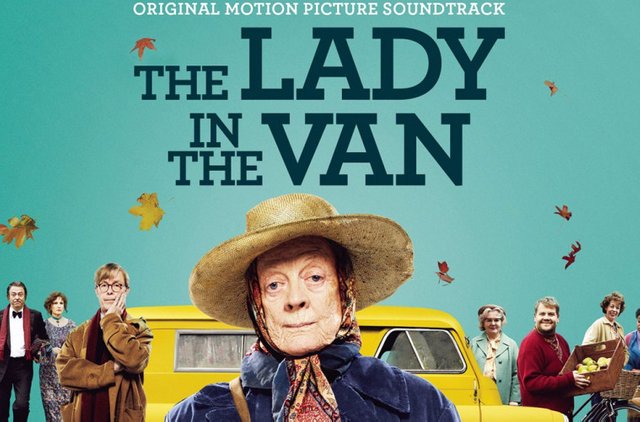
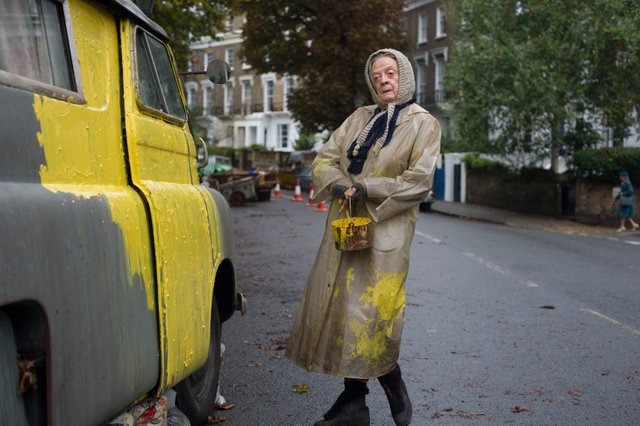
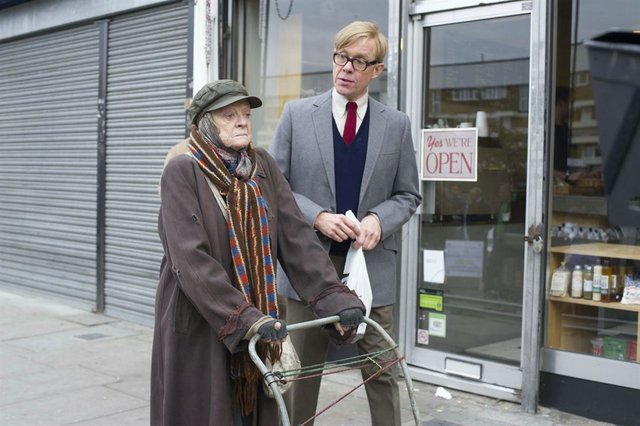
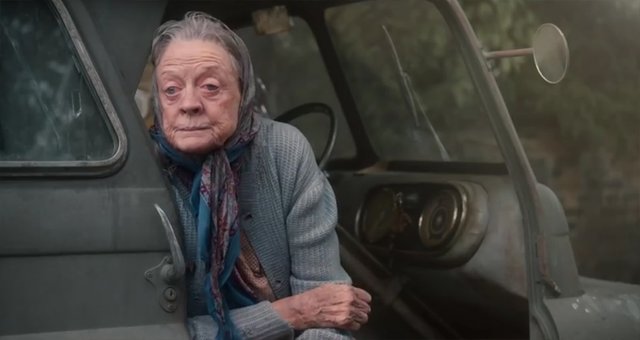
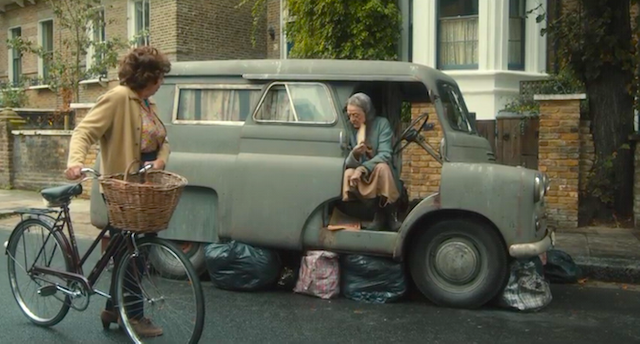

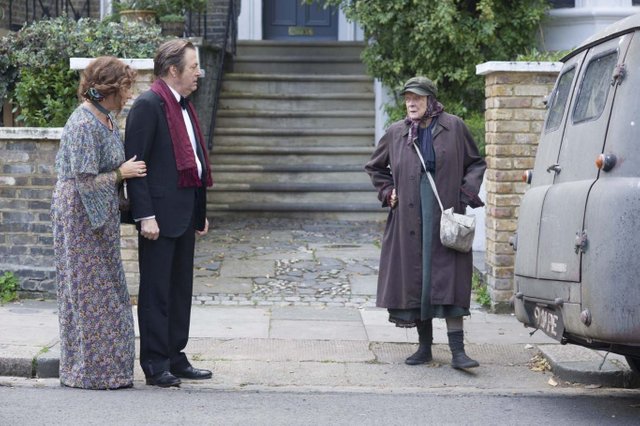
Congratulations @anaerwu! You have completed the following achievement on the Steem blockchain and have been rewarded with new badge(s) :
You can view your badges on your Steem Board and compare to others on the Steem Ranking
If you no longer want to receive notifications, reply to this comment with the word
STOPTo support your work, I also upvoted your post!